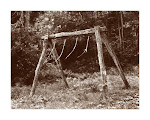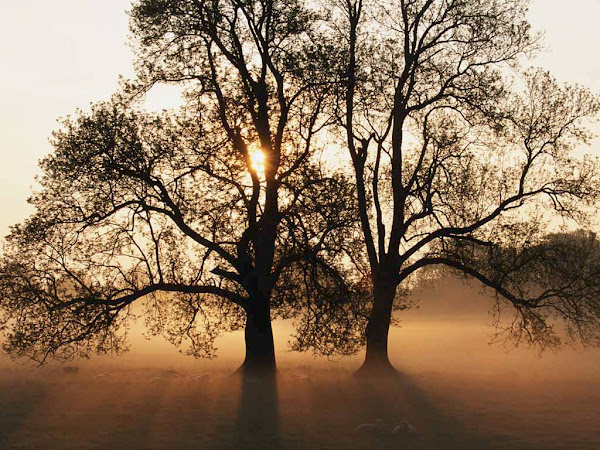When Stories are Kept Hidden out of Fear
I believe our task is to develop a moral and aesthetic imagination deep enough and wide enough to encompass the contradictions of our time and history, the tremendous loss and tragedy as well as greatness and nobility, an imagination capable of recognizing that where there is light there is shadow, that out of hubris and fall can come moral regeneration, out of suffering and death, resurrection and rebirth. Richard Tarnas
The last few centuries have fostered philosophical conundrums that are definitely downers at the weekend pub exchange. Who wants to bring up the spiritual malaise of countless friends within our small clique of friends let alone the countries throughout the world that are going through massive shifts in how they configure and understand the world? For many, a return to ancient ways and times is the simple answer. God is displeased and sacrifices must be made. Infidels are amongst us and must be punished and true believers must rise up. This of course is a highly simplistic rendering of a much more complicated issue but neo-fundamentalism has become a force in many countries where technology and the inclosing world have proven to be more than problematic. They appear to threaten the very underpinnings of a civilization.
Anyone traveling overseas understands that much of the products the Americas send overseas are media and entertainment oriented. These products are in many ways narrative salvos across the bough of cultures that here to fore knew nothing of these fables. The self made man, the romantic love interest, the dumb and dumber clown that is there for our mocking, the greed that is sanctified through the wounds that lead the antagonist there in the first place, are all novel expressions of being human in these first and second world countries. Many of these metaphors were nonexistent to these people groups or were couched in much more uncontaminated and societally sanctioned settings.
In the wonderful film "Balzac and the Little Chinese Seamstress," by Dai Sijie, two boys in their late teens are sent to a small mountain village to be re-educated during the Cultural Revolution. They both fall in love with an old tailor's grand daughter who is known as the little seamstress. During the internment the boys discover a stash of books one of their fellow bourgeois transplants has hidden away. They steal the books and begin to read to the young girl. She falls in love with Balzac out of all the choices primarily due to the shear freedom of soul she finds in his writings.
We in the West are so deluged with books and art in the after math of many years of free speech we are unable to detect a good read from a bad. Could our intellectual oppression actually be more of the type of barbituated presumption predicted in the writings of men like Aldous Huxley in Brave New World? We now have so much freedom we deem our ability to form new stores an entitlement, thus, we do not read. This is not due to some ban on books but a ban on the intrinsic power of the soul to hunger after the beauty of images and metaphors . We are deadened to the power of story. We are emptied of our need to expand our very being through the sway and vigor of language and heart felt accounts of the universe written by our fellow planet mates. Are we not interned as well?
Who would have predicted that a young girl in the far reaches of rural China would fall into the metaphoric arms of Balzac and begin to re-name her own experience as real and true. Balzac, known for a kind of post-romantic realism brought to his readers a desire to offer a perspective on his characters that allowed them to be seen as real; capable of both good and evil. This glimpse into the characters of men and women of Paris during the early nineteenth century jumped off the page of this banned book over one century later in the outback of China and moved this young girl to see beyond her village, to dream beyond her current life.
Let’s not fool ourselves. Many a young person was punished or killed for this kind of risk taking during the cultural revolution. Why? Grand meta-narratives were colliding. Old stories or oppressive ways of naming were in control. These were as much wars over stories as they were over nation states and resources.
Those unsettling times of great transition regarding our foundational accounts of life and truth are not battles fought once and for all. These wars rage on and on. Many believers feel as though they are in an intervening time as well. So much of what we thought we knew seems to have evaporated. So much of what we regarded as firm and genuine is now on shaking ground. During these story wars, or as many have called culture wars, we are “in-between” stories. Whose story will win? Whose story is the most powerful to define and a refine the conundrums of life? Whose story resonates deepest with the cavern like recesses of the human heart?
Research seems to indicate that one actuality lives inside of their account of reality. Experience places us in mundane day to day stories that we tell ourselves so the world seems to cohere and make sense. On a much deeper level we have sacred stories that are not religious in an explicit sense but are sacred in that they offer up levels of meaning that allow us to navigate the vicissitudes of life. Some who study the brain and thought feel that stories may actually be consciousness itself. In other words, we may be aware of what we deem reality by virtue of the stories we tell ourselves about reality. Hence, stories by their nature create the world. Not that they are creation stories in a religious sense but that they create the world of consciousness and the personhood or self that lives inside that story and inhabits it.
This understanding as to consciousness is different than many psychological readings on consciousness. Most compartmentalize our sense of being human inside a number of neurological and even chemical responses to stimuli. They determine that we are really biological machines that configure and manifest life as a byproduct of our biology merely responding to the outside world. Narrative theories seem to offer up a much more metaphorical construction. In this understanding we name and embody our world. I am the story I tell myself about myself.
Psycho-drama experts tell us that asking a person “Who told you that about yourself?” is key in the deconstruction of dangerous and unhealthy stories about oneself. We learn about life and ourselves from what and how others name us. In our early years of childhood we are at the whim and whimsy of elders who could tell us anything about ourselves. We hear of horrendous memories from individuals who were told highly toxic things about themselves. Years later that story is almost some kind of mobius strip that plays over and over again inside the mind. The dismantling and rewriting of that story cannot be done alone. No amount of positive thinking or recitation of some positive mantra will release a story that is so deeply embedded in one’s consciousness. In fact, the earlier it was deposited, the difficulty involved in disengaging it is daunting and the expertise in dislodging it and retelling it is not for the faint of heart.
What is my current story? Where did it come from? What will the new story be? How do I begin to write that saga? If this formation of consciousness is possible, then the nature of the stories we tell ourselves now become much more significant to our sense of living in this world. Contemporary popular psychologies have grabbed hold of this tendency to be able to “speak” our existence into being and have made the power of words and narratives supernatural in their ability to create our world from our thinking. This is a sinister plot twist, however, as the study of narratives on the development of consciousness is not as simple as speaking some mantra of prosperity, wealth and health over yourself. In fact, this idea that the self alone can alter the very nature of reality is its ultimate flaw. Stories are never created nor sustained by the individual. We are a peopled story by the nature of our imbededness in time and space. We are all telling stories together at the same time. Occasionally we listen and incorporate each other in love. That is the Kingdom way of story telling. There is a grand narrative. We do not and can not write this story alone.
Tuesday, September 9, 2008
Subscribe to:
Post Comments (Atom)






No comments:
Post a Comment